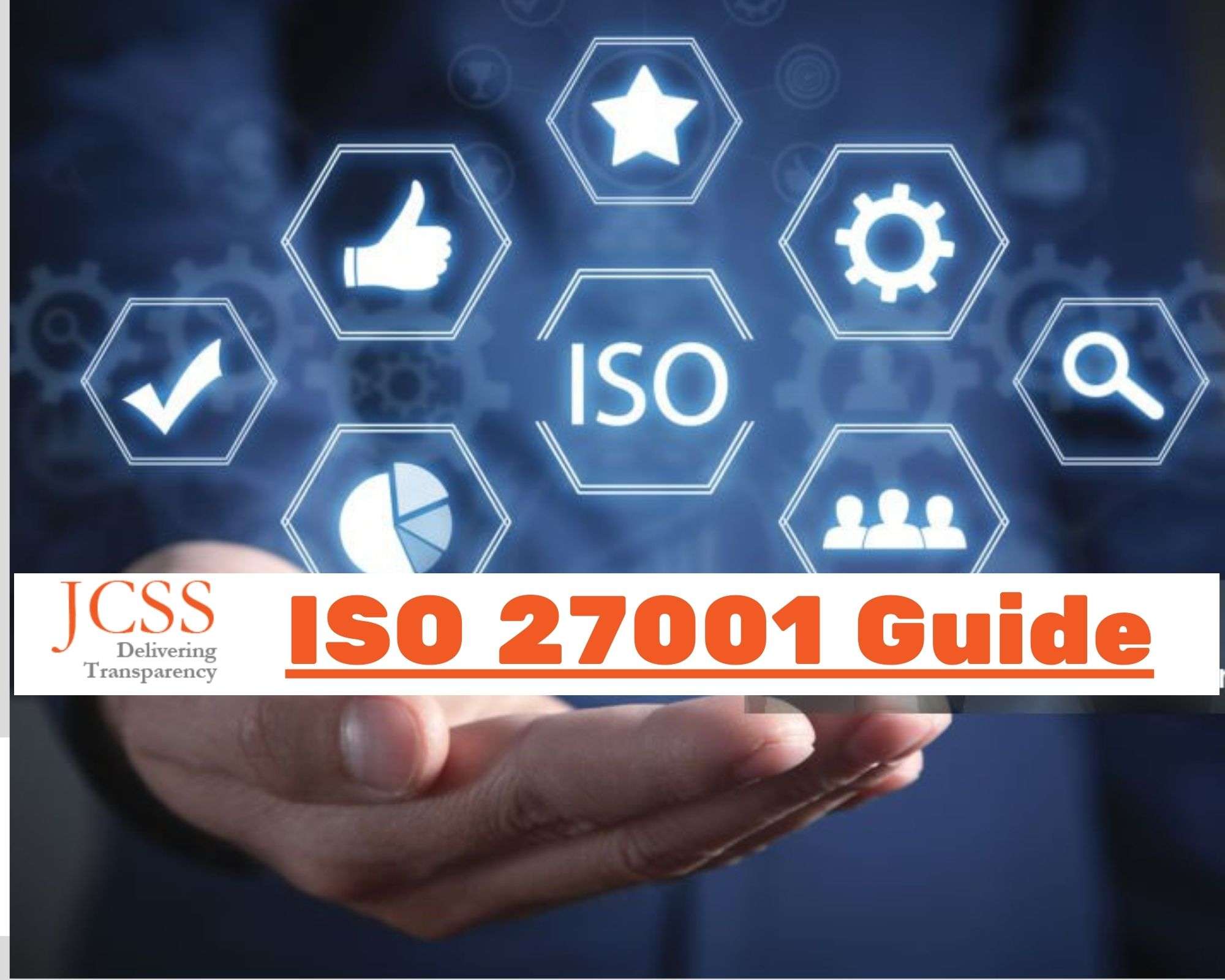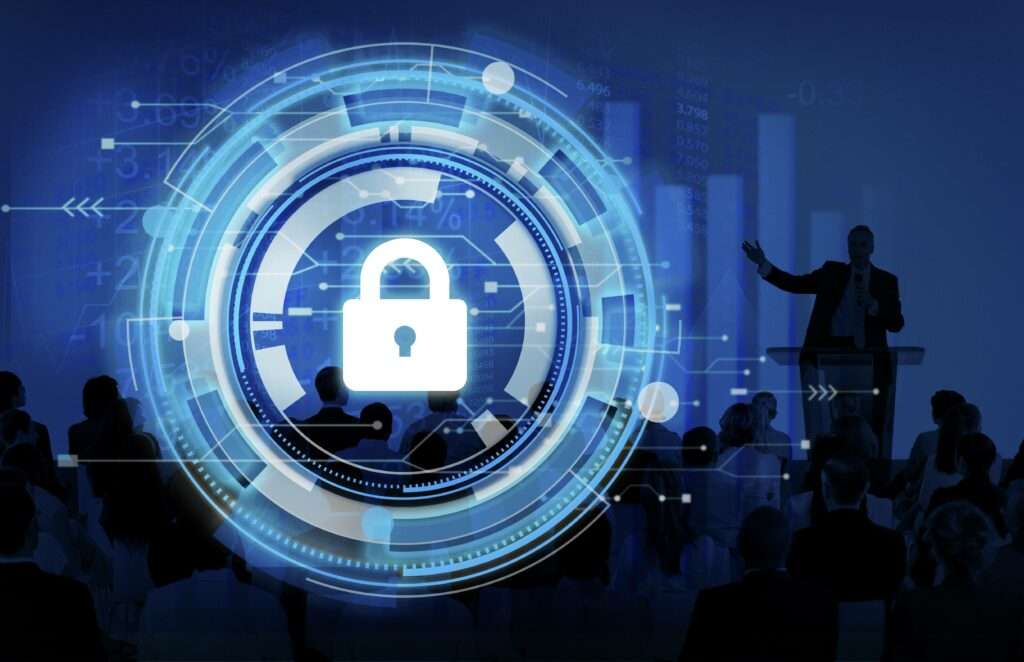
ISO/IEC 27001 is the leading international standard for regulating data security through a code of practice for information security management.
Its creation was a joint effort of two prominent international standard bodies – the International Organization for Standardization (ISO), and the International Electrotechnical Commission (IEC). This is why the standard is formally prepended with ISO/IEC, though “IEC” is commonly left to simplify referencing.
ISO/IEC 27001 is comprised of a set of standards covering different aspects of information security including information security management systems, information technology, information security techniques, and information security requirements.
The latest standard is ISO/IEC 27001:2013, which was published in 2013.
Why is ISO/IEC 27001 Important?
When a business is ISO/IEC 27001 certified it’s officially recognized for adhering to the highest internationally recognized information security standard.
This certification demonstrates a world-class level of operations security across threat monitoring, breach mitigation, and sensitive data protection. Because of this exemplary reputation for risk management, partners and customers of ISO/IEC 27001 certified organizations have greater confidence in the security of their information assets.
Organizations requiring clear guidance for strengthening their security posture will benefit from the ISO framework’s convenient consolidation of necessary security policies and processes. Any industry, regardless of its size, can implement a cost-effective Information Security Management System (ISMS) through either an ISO 27001 certification or by becoming ISO 27001 compliant.
Read More: Audit-Ready Infrastructure: SOC 2 Compliance For Robust Data Security
What is an Information Security Management System (ISMS)?
An ISMS consists of a set of policies, systems, and processes that manage information security risks through a set of cybersecurity controls.
The objective is to only permit acceptable risk levels into the monitored ecosystem to prevent sensitive data from being leaked or accessed by cybercriminals. The primary intention of an ISMS is not to prevent data breaches but to limit their impact on sensitive resources.
It’s important to understand that the pursuit of information security does not end at ISO/IEC 27001 certification. The certification demonstrates an ongoing commitment to improving the protection of sensitive recourse through risk assessments and information security controls.
Benefits of ISO/IEC Certification
Some of the benefits of aligning with the ISO 27001 standard are listed below:
- It demonstrates a commitment to preserving the data security of all third-party vendors, business partners, and stakeholders.
- Demonstrates a commitment to the continual improvement of data security for all third-party vendors, suppliers, customers, and business partners.
- It is an internationally recognized standard for Information Security Management (ISM).
- It offers a competitive advantage by demonstrating superior risk management and due diligence.
- Reduces excess time and cost commitments to processes.
- It can facilitate partnerships with highly regulated businesses.
- It can attract higher-quality candidates and business partners.
- Reduces the cost of risk remediation processes.
- Prevents regulator fines (such as GDPR).
- Reduces the likelihood of data breaches and third-party breaches.
- Reduces the impact and cost of a data breach.
What is the ISO 27001 Certification Process?
An ISO/IEC 27001 certification can only be provided by an accredited certification body. Candidates are assessed across three different information security categories:
- Information Confidentiality – Are sufficient access controls in place to prevent unauthorized access?
- Information Integrity – Is information protected from unauthorized modifications?
- Information Availability – Is information readily available to authorizes users when it’s required?
By understanding the high-level expectation of certification audits, it becomes clear that the primary mechanism of the ISO/IEC 27001 framework is the detection and mitigation of vulnerabilities through a series of security controls.
A certifier will assess the practices, policies, and procedures of an ISMS against the expected standards of ISO/IEC 27001.
Certification is valid for 3 years. Auditors will continue to assess compliance through annual assessments while the certificate remains valid. To ensure compliance is maintained every year in time for these assessments, certified organizations must commit to routine internal audits.
Some U.S accredited certification bodies for ISO/IEC 27001 are listed below:
The ISO 27001 standard can be broken up into two parts:
- Eleven Clauses (0-10) – Clauses 0 to 3 provided an introduction to the ISO/IEC 27001 standard. Clauses 4-10 should be carefully considered because they outline the minimal compliance expectations for certification.
- Annex A – Defines the guidelines for the 114 controls objects that support ISO/IEC 27001 compliance.
Read More: VAPT: Your Ultimate Shield Against Online Threats – Get Started Now!
A brief description of clauses 4 – 10 is provided below:
Clause 4 – Context of the Organization
Organizations need to demonstrate confident knowledge of all internal and external issues, including regulatory issues, so that scope of ISMS within the unique organizational context is clearly defined.
Clause 5 – Leadership
Clause 5 identifies the specific commitments of the leadership team to the implementation and preservation of an ISMS through a dedicated management system.
These could include:
- Ensuring resource requirements are met.
- Ensuring the organization’s information security objectives are met.
- Overseeing the complete integration of the management system with business processes.
- Implementing all appropriate security controls.
- Ensuring all parties are contributing to the success of the ISMS.
Clause 6 – Planning
An ISMS implementation plan needs to be designed based on a security assessment of the current IT environment.
This process involves identifying all assets and then evaluating their risks relative to a specified risk appetite.
This time-consuming process is best entrusted to an attack surface monitoring solution to ensure both speed and accuracy.
Once identified, all risks can be managed and mitigated with the Annex A security controls.
Clause 7 – Support
Clause 7 ensures all staff have been supported with the necessary training to adhere to the ISO/IEC 27001 standards.
Clause 8 – Operation
Clause 8 ensures the appropriate processes are in place to effectively manage detected security risks. This objective is primarily achieved through risk assessments.
Clause 9 – Performance evaluation
In order for ISO 27001 certified organizations to follow through with their commitment to ongoing data security improvement, internal audits need to be regularly conducted.
The objective is to analyze the performance of the Information Security Management System against expected security standards.
Clause 10 – Improvement
The data gathered from the Clause 9 process should then be used to identify operational improvement opportunities.
Continual improvement of the risk management process can be achieved through the use of maturity models coupled with routine auditing efforts.
ISO/IEC 270001 Security Controls
Annex A of the ISO 27001 standard is comprised of 114 controls divided across 14 domains or categories. Not all control objectives are mandatory, they should be viewed as a list of control options.
Each organization should apply the necessary level of controls required to achieve the expected level of information security risk management compliance based on their current degree of compliance.
This unique shortfall can be calculated with an ISO 27001 gap analysis.
All of the implemented controls need to be documented in a Statement of Applicability after they have been approved through a management review.
The 14 domains of Annex A of ISO/IEC 27001 range from A.5 to A.18.
- A.5 Information security policies
- A.6 Organisation of information security
- A.7 Human resources security
- A.8 Asset management
- A.9 Access control
- A.10 Cryptography
- A.11 Physical and environmental security
- A.12 Operational security
- A.13 Communications security
- A.14 System acquisition, development, and maintenance
- A.15 Supplier relationships
- A.16 Information security incident management
- A.17 Information security aspects of business continuity management
- A.18 Compliance
Is ISO/IEC 27001 Mandatory?
ISO/IEC 27001 is not a mandatory requirement in most countries, however, compliance is recommended for all businesses because it provides advanced data protection.
ISO 27001 implementation and compliance is especially recommended for highly regulated industries such as finance, healthcare and, technology because they suffer the highest volume of cyberattacks.
The ISO 27000 family of standards can facilitate compliance with mandatory standards such as the General Data Protection Regulation (GDPR). This is because the ISO/IEC 27000 family follows an Annex SL – a high-level structure of ISO management standards designed to streamline the integration of multiple standards.
By combining an ISO 27701-compliant Privacy Information Management System (PIMS) with an ISMS through an integrated management system, the strict personal data protection expectations of the GDPR can be met.
Because of this, compliance with an ISO 27001 family can become necessary (and almost mandatory) to achieve regulatory compliance with other security frameworks.
What’s the Difference Between ISO/IEC 27001 Certification and Compliance?
When an organization is compliant with the ISO/IEC 27001 standard, its security program aligns with the ISO/IEC 27001 list of domains and controls – or at least a sufficient number of them.
When an organization is ISO/IEC 27001 certified, its Information Security Management System (ISMS) has been confirmed to align with the ISO/IEC 27001 standard by an accredited certification body.
JCSS Indonesia: Your Partner for Secure and Compliant ISO 27001 Certification
In today’s digital age, protecting your sensitive data is no longer optional – it’s essential. Achieving ISO 27001 certification demonstrates your commitment to robust information security standards, boosting trust with clients, partners, and investors. But navigating the complexities of implementing an Information Security Management System (ISMS) and achieving certification can be daunting, especially for small businesses. This is where JCSS Indonesia steps in.
Why Choose JCSS Indonesia for ISO 27001 Certification?
- Extensive Experience: JCSS Indonesia boasts a team of experienced and certified professionals who understand the intricacies of ISO 27001 and its application across various industries.
- Tailored Solutions: They recognize that each business has unique needs. JCSS Indonesia offers customized solutions to ensure your ISMS aligns perfectly with your specific size, industry, and risk profile.
- Streamlined Process: Their team guides you through every step of the certification journey, from gap analysis and documentation to training and audits, ensuring a smooth and efficient process.
- Cost-Effectiveness: JCSS Indonesia understands the budget constraints of small businesses. They offer transparent pricing and flexible payment options to make achieving ISO 27001 certification accessible.
Services for Small Businesses:
JCSS Indonesia recognizes the specific challenges faced by small businesses when it comes to achieving ISO 27001 certification. They offer a range of services specifically designed to cater to your needs:
- ISO 27001 Awareness Training: Educate your team on the importance of information security and their role in upholding the ISMS.
- Gap Analysis and Risk Assessment: Identify areas where your current practices fall short of ISO 27001 requirements and prioritize risks for effective mitigation.
- ISMS Development and Documentation: Develop a comprehensive ISMS tailored to your business, complete with essential policies, procedures, and controls.
- Implementation Support: Receive expert guidance throughout the implementation process, ensuring your ISMS is effectively integrated into your daily operations.
- Internal Audit and Management Review: Conduct regular audits to identify and address any gaps or weaknesses in your ISMS, maintaining continual improvement.
- Certification Assistance: Prepare for and navigate the certification audit by a recognized accreditation body, ensuring a smooth and successful outcome.
Cost Considerations:
The cost of achieving ISO 27001 certification with JCSS Indonesia varies depending on several factors, including:
- The size and complexity of your organization: Smaller businesses with less complex data environments typically incur lower costs.
- The scope of your ISMS implementation: The number of processes and systems covered by your ISMS influences the overall cost.
- The level of support you require: Opting for a comprehensive package with full implementation support will naturally cost more than basic gap analysis and training.
However, JCSS Indonesia is committed to transparency and affordability. They offer free consultations to discuss your specific needs and provide a tailored quote that fits your budget. Remember, investing in ISO 27001 certification now can save you significant costs in the long run by preventing data breaches and regulatory fines.
Contact JCSS Indonesia Today:
Ready to embark on your ISO 27001 journey with a trusted partner? Contact JCSS Indonesia today for a free consultation and discuss how their expertise can help your small business achieve robust information security and gain a competitive edge. Remember, data security is not a luxury; it’s an investment in your business’s future success. Click on the contact us now button and fill the form, our representatives will be in touch with you.

